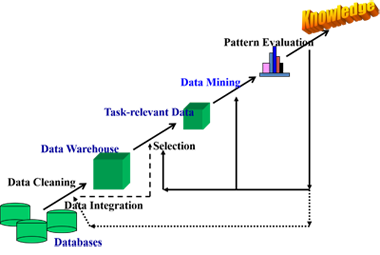Data Mining & Exploration
We make science discovery happen
News
The Course will start on November 6, 2018
Course list of questions for oral examination
F2 Magazine article on Astroinformatics
Course of Astroinformatics
PhD and M. Sc. in Physics - University Federico II of Naples
Tutors: Massimo Brescia and Stefano Cavuoti

The course of Astroinformatics of the Master's Degree in Physics of the University Federico II, is the first course of Astroinformatics in Europe and will address the methodological and technological challenges posed by the scientific exploitation of massive data sets produced by the new generation of telescopes and observatories. Astronomy, which already was at the forefront of Big Data science with exponentially growing data volumes and data rates, is now entering the petascale regime at optical, infrared and radio wavelengths. Astronomy is truly becoming data-driven in the ways that are both quantitatively and qualitatively different from the past. The data structures are not simple, and the procedures to gain astrophysical insights are not obvious, but the informational content of the modern data sets is so high that archival research and data mining are not merely profitable, but practically obligatory, since researchers who obtain the data can only extract a small fraction of the science that is enabled by it.
The Course gives 8 credits but is also included into the PhD curriculum in Physics of the University Federico II.
Course Description
The Course aims at providing the fundamental concepts at the base of the theory of data mining, data warehousing and machine learning (neural networks, fuzzy logic, genetic algorithms, soft computing), approached by the point of view of Astrophysics and Information Communication Technology.
The Course is organized into 32 (64 hours) lessons, with the following topics:
- E-science and data warehousing;
- Data mining and statistics;
- Supervised Machine learning;
- Unsupervised Machine learning;
- Deep Learning;
- Image Processing;
- Information & Communication Technology;
- Python language fundamentals;
- Parallel programming fundamentals;
- Astrophysical applications;
- Other context applications;
- Virtual Observatory fundamentals.
During the course some practical experiences with students are foreseen: from data handling, to software design and development, statistical analysis, investigation on diagrams and tables (trend analysis, plotting, data quality). In specific cases students are allowed and invited to investigate in-depht topics and to discuss during lectures.

The examination, at the end of course, is based on an optional seminary on a specific argument, developed by the student and agreed with the tutor, followed by some general questions about course insights.
Here it is possible to download a list of questions about all topics discussed during the course. Such questions are useful to evaluate your own pre-examination level of learning, since the oral discussion will be based upon such questions.
The education material is based on the slides discussed during the lectures. Depending on the argument, specific references are provided. Several softwares and platforms, available on the web, are also introduced and practically used in the course practical experiences.
Lectures - Download
